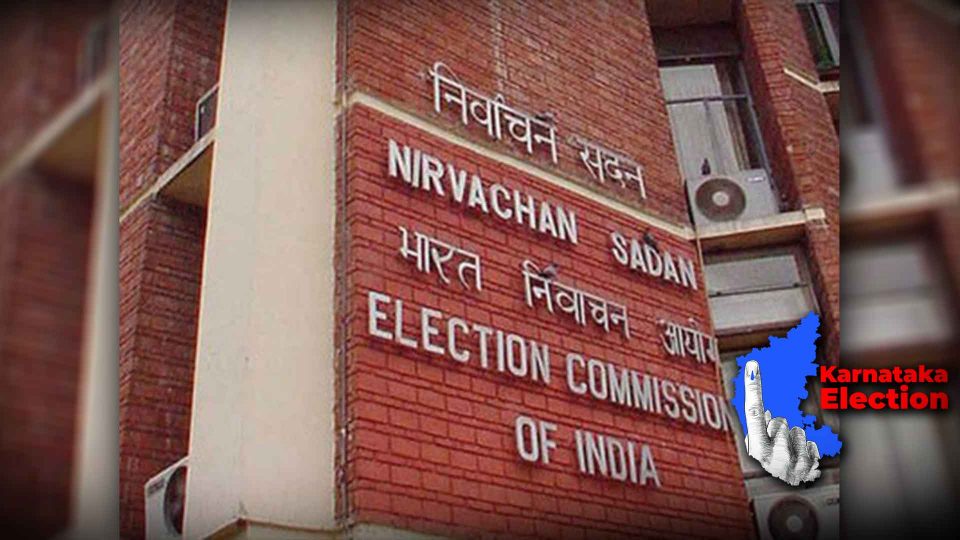The Election Commission and the Law Commission are likely to hold a brainstorming session next week on the road ahead for holding the Lok Sabha and Assembly elections together.
The poll panel has invited law panel chief Justice B S Chauhan (retd) and other top officials to discuss the issue on May 16.
“Yes, we will discuss the issue of simultaneous polls with the EC as they are the one who are mandated to hold elections,” said a law panel official.
The planned meeting comes days after the Law Commission issued a working paper on simultaneous polls.
The law panel said simultaneous elections to the Lok Sabha and state Assemblies could be held in two phases beginning 2019, provided at least two provisions of the Constitution were amended and ratified by a majority of the states.
Some provisions of the Representation of the People Act would also have to be amended by a simple majority in Parliament, it said.
According to the working paper, the second phase of simultaneous polls could take place in 2024.
The document has proposed amending the Constitution (Articles 83 (2) and 172 (1) dealing with tenures of the Lok Sabha and the state Assemblies) and the Representation of the People Act to extend the terms of state legislative Assemblies to effect the move.
It suggests that in case a government falls mid-term, the new government would be elected for the remaining period of that term, and not for a fresh five-year rule.
“As an abundant caution and in order to avoid a challenge (in the courts) to amendments on the ground of not having obtained ratification by majority of the states, such ratification could be obtained for the proposed (constitutional) amendment,” the working paper says.
The states which are recommended to be covered under phase I, with Assembly polls in 2021, include Andhra Pradesh, Assam, Bihar, Madhya Pradesh and Maharashtra.
States which will come under phase II include Uttar Pradesh, Gujarat, Karnataka, Delhi and Punjab. To hold elections in these states along with Lok Sabha polls, the terms of the Assemblies would have to be extended.
Based on a suggestion made by the Election Commission, the working paper also says that a no-confidence motion against the government should be followed by a confidence motion. This would ensure that if the Opposition does not have the numbers to form an alternative government, the regime in office cannot be removed.
The law panel has sought the views of constitutional experts, political parties and other stakeholders before finalising its report.
Chief Election Commissioner Om Prakash Rawat had a word of caution on simultaneous polls when he recently said the legal framework required for holding the elections together would take time to be readied.
“We cannot put the cart before the horse. Logistical issues are subservient to legal framework. Unless legal framework is in place, we don’t have to talk about anything else because legal framework will take a lot of time, making constitutional amendment to (changing) the law, all the process will take time,” he had said.
He had said once the legal framework was ready, the EC would be out with its proposals.
“The EC is a creation of the Constitution. We have to perform willy-nilly, deliver the election, whatever way prescribed in the law,” he had said.
After Prime Minister Narendra Modi’s strong pitch for simultaneous elections to the Lok Sabha and state Assemblies, the law ministry had recently suggested consideration of the issue from the legal and logistical angles separately.
The legal angle would involve constitutional amendments that would be required to be passed before the idea could be implemented on the ground.
The other part would deal with logistics, infrastructure and finances.
Following the recommendation of the Parliamentary Standing Committee on Law in December 2016 to hold the two polls together, the law ministry had sought the views of the Election Commission.
The commission, while supporting the idea, had made it clear that it was an expensive proposition and the Constitution would have to be amended to curtail or extend the terms of certain state Assemblies.
The Commission has told the law ministry that it supports the proposal but the costs involved will be to the tune of over Rs 9,000 crore.
Deposing before the parliamentary panel which gave its report on the ‘Feasibility of holding simultaneous elections to Lok Sabha and state Legislative Assemblies’, the Commission had voiced these concerns.
The Commission has told the government as well as the committee that simultaneous conduct of elections would require a large-scale purchase of Electronic Voting Machines and Voter Verifiable Paper Audit Trail (VVPAT) machines.
“For conducting simultaneous elections, the Commission expects that a total of Rs 9,284.15 crore will be needed for the procurement of EVMs and VVPATs,” the poll watchdog had said.
As an independent media platform, we do not take advertisements from governments and corporate houses. It is you, our readers, who have supported us on our journey to do honest and unbiased journalism. Please contribute, so that we can continue to do the same in future.

